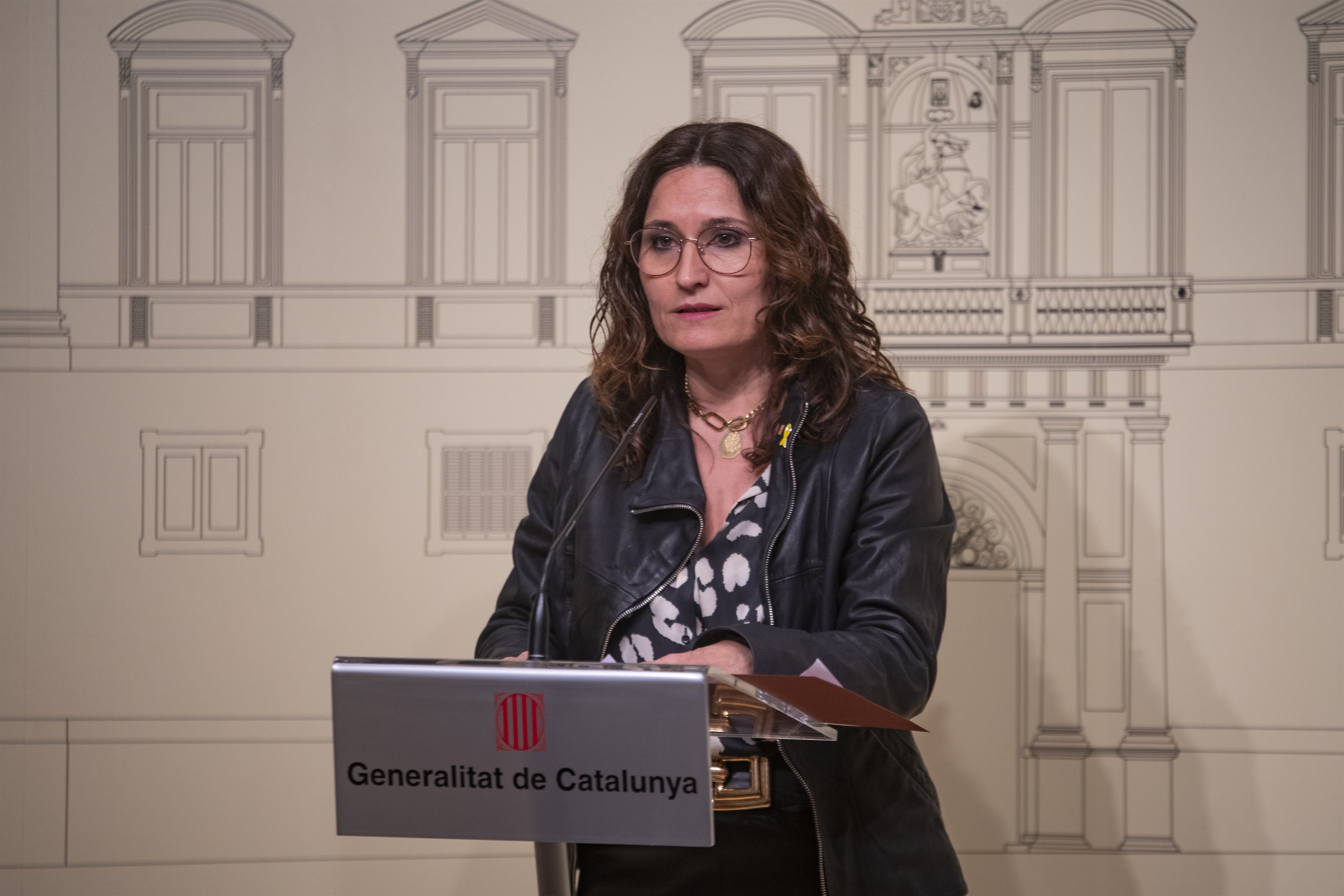The Catalan presidency minister, Laura Vilagrà, did not hide her government's dissatisfaction after meeting with her counterpart in the Spanish executive, Félix Bolaños, to hear explanations for the espionage suffered by more than 60 people connected to the Catalan independence movement. "This is a very serious matter and we have not received the answers we were hoping for," said the minister, summing up that this Sunday morning's meeting "did not go well", that the information she received was insufficient and that "if the Spanish government fails to move there will be grave consequences".
The minister made clear the coldness in the treatment of Bolaños, who arrived at Barcelona's Generalitat palace three quarters of an hour late and who, after the meeting, announced an internal inquiry within the Spanish intelligence service over the affair, as well as putting in action the Spanish Congress's official secrets committee, supposed to have a watchdog function over the CNI spy agency, but which has not met since 2019. Before the encounter, Vilagrà demanded that there be no mobile phones on the table during the meeting and at a subsequent press conference she said that she would not attend tomorrow's meeting in Madrid to discuss the proposed Winter Olympics bid.
After the two-hour meeting at the Catalan government palace, Vilagrà conveyed the Catalan administration's discontent with the lack of responses and reiterated the demand for maximum transparency and information on a series of questions, including what specific investigation the Spanish government will now make, how the results will be made public, who ordered the hacking - "we are not in any doubt that the government knows this", she warned - who was aware of this espionage, what has been done with the information obtained, who has custody of it, who has access to the information that was collected, what public responsibilities the Spanish executive is willing to assume and how Catalan society can know that it is not being spied on.
Resignations
The meeting was held after the president of Catalonia, Pere Aragonès, had told the Spanish government last Thursday that someone had to take responsibility for this matter. "From the first day we have demanded maximum transparency. Today the meeting did not go well. We cannot be satisfied with the explanations. They are insufficient, unspecific, vague, and of uncertain results," the minister stated when appearing before the press.
Vilagrà said that no one has any doubt that Catalan independence supporters have been spied on and that the Spanish government cannot simply hide behind the official secrets act, and for that reason she demands to know what specific investigation the Spanish authorities are proposing.
"This is not a bluff"
"Today we do not have these answers. Six days since the facts appeared, no one has taken responsibility. We need results. So today's meeting is insufficient," she said. The minister called on the Spanish government to be courageous in tackling the general case against the independence movement.
As for the consequences that this affair will have on ERC's support for the Socialists' minority Spanish government, the minister asserted that Pedro Sánchez "knows perfectly well" that the reaction of the Catalan executive "is not a bluff", because trust has been broken "more than ever." In this regard, she warned that the PSOE does not have the support of ERC in Congress "in a generic way". "Obviously, that as long as this case is not resolved, we cannot talk about guaranteeing our support," she warned, without making it clear what the ERC vote will be in the decree law that will presented to Congress next Thursday over the economic measures in the wake of the Ukrainian war.
Revival of watchdog body, asleep since 2019
The announcement by Spanish minister Felix Bolaños that the Congress's official secrets committee is to be convoked for the first time in the 27 months of Pedro Sánchez's government follows a concession on Friday by the opposition People's Party that it will lift its current veto on members of pro-independence parties forming part of the body. Thus, the watchdog group of MPs who, although sworn to secrecy on the proceedings of the Congressional committee, constitute the Spanish parliament's only check on the activities and spending by the Spanish intelligence services, is to begin its process of constitution "immediately", said Bolaños, with all parliamentary parties able to form part of it. The non-existence of this committee until now is yet another of Spain's constitutional organs which has failed to be renewed properly in recent years, along with most of the senior judicial framework, due to deadlock between Spanish political parties over appointments.

